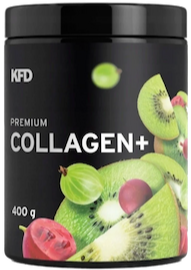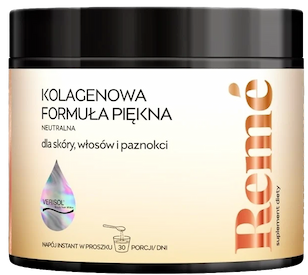Collagen - for drinking, tablets and powder. Ranking
Collagen for face, hair, nails and joints. In this article, we look at the best supplement suggestions.


Learn more about our editorial process
.

Learn more about our editorial process
.

Learn more about our editorial process
.

Learn more about our editorial process
.
Why you can trust us
Articles on Natu.Care are written based on scientific research, data from government websites and other reliable sources. The texts are written in cooperation with doctors, nutritionists and other health and beauty experts. Articles are reviewed before publication and during significant updates.
.Learn more about our editorial process
.Information about advertisements
Content on Natu.Care may contain links to products from the sale of which we may receive a commission. When creating content, we adhere to high editorial standards and take care to be objective about the products discussed. The presence of affiliate links is not dictated by our partners, and we select the products we review ourselves completely independently.
.Learn more about our terms and Conditions
.Collagen in liquid, powder, tablets, capsules. And then there are hydrolysates, peptides and bovine or marine collagens. It's easy to get lost. Fortunately, this article is your detail map.
Navigate the terrain together with your cartographer - clinical nutritionist Julia Skrajda. See where the best collagens on the market are hidden. Learn useful facts about this valuable protein. Choose the option tailored to your needs.
From this article you will learn:
- What is the best collagen on the market.
- What is the best collagen on the market?
- What to look for when choosing collagen for your needs. .
- What to do to make collagen supplementation effective. .

Sprawdź, za co pokochały go tysiące klientek Kolagen Premium (10 000 mg) mango-marakuja -15% z kodem BLOG15
Natu.Care Kolagen Premium 10000 mg, mango-marakuja
Natu.Care Kolagen Premium dla zdrowia stawów, skóry, paznokci i włosów. Najlepsza przyswajalność. Optymalna dawka 5 000 lub 10 000 mg. Przebadany przez niezależne laboratorium.
Zobacz więcej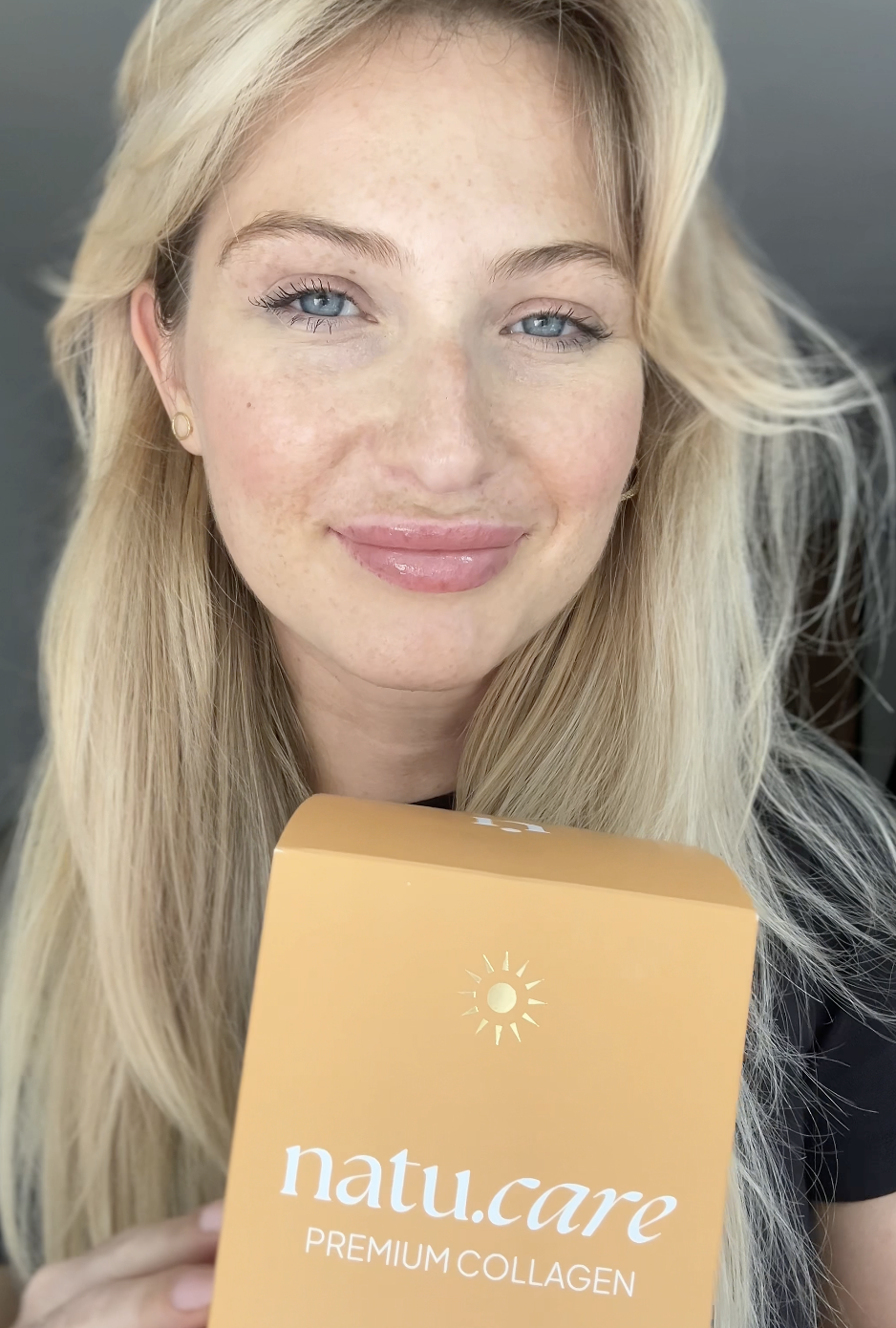
Wybrałam kolagen Natu.Care, ponieważ miał super opinie – a to było dla mnie bardzo ważne! Odkąd go stosuję, moja skóra znacznie się poprawiła i jest nawilżona, a na głowie pojawiły się nowe "baby hair".@Kasia S.
See also:
.
- Best facial collagen
- Best collagen for the skin
- Best collagen for joints
- Best collagen for hair
- Best collagen for wrinkles
- Best collagen for bones
- Best collagen for tendons
- Best collagen for drinking and collagen for drinking (effects)
Best collagen - ranking
.
Number of products analysed: 178. Number of finalists: 15.
.
The composition of the collagens was assessed by pharmacist Ilona Krzak and dietitian Julia Skrajda.
Selection criteria:
.
- .
- Collagen content. The most effective products, according to research, contain between 2.5 and 15 grams of hydrolysed collagen. Smaller amounts will be poorly effective and larger amounts will be pointlessand. .
- Purity of ingredients. You will not find preservatives or other fillers in the best collagen supplements. .
- Additional active ingredients. Vitamins and minerals help with collagen production. .
- Testing. The quality of the ingredients should be confirmed by tests carried out by independent, accredited laboratories.
- Form of administration. Powder, liquid, capsules or even lozenge tablets - there is something to suit everyone. .
- Origin of collagen. Care for the environment, the well-being of the seas and oceans and a safe source of collagen, or a secret culture without certification? The simple answer.
- Flavour. It's not supposed to smell fishy, it's supposed to captivate with succulent flavour - simple. Here you can see the full criteria. .
Natu.Care Collagen Premium 5000 mg, mango-maracuja

- Collagen content: 5000 mg marine collagen hydrolysate
- .
- Additional active ingredients: vitamin C, low molecular weight hyaluronic acid (and L-theanine and coenzyme Q10 in cocoa flavoured collagen or vitamin A and vitamin E in mango–passion fruit flavoured collagen)
- .
- Form: powder sachets
- .
- Dose: 1 sachet per day
- .
- Sufficient for: 30 days
- .
Product description
Fish collagen from the Natu.Care brand in a dose of 5000 mg. The formula contains a sufficient portion of the active substance to positively affect your joints, musculoskeletal system and immunity.
Take care of your tendons, joint cartilage, ligaments, muscles and even bones by supplying them with the building blocks to function properly. Move without bólu and provide the necessary support for any physical activity.
And as a „gratis” to regular supplementation, you will also receive firm skinóhand, healthy and shiny hair and strong nails.
Natu.Care Premium Collagen is available in two flavours – Cacao Bloom and Rise&Shine. Both formulas are based on the following active ingredients: marine collagen hydrolysate, wild roseóbud extract and hyaluronic acid.
Additionally, Cacao Bloom contains natural L-theanine, coenzyme Q10 and defatted Dutch cacao. Rise&Shine instead contains vitamin E and vitamin A.
These are the best collagens in the world.
These best fish collagens on the market also rós taste – Cacao Bloom is a treat for chocolate lovers. Rise&Shine will appeal to those whoóenjoy the refreshing taste of mangoófruit and passion fruit.
Pros and cons
Fish collagen from the Natu.Care brand in a dose of 5000 mg. The formula contains a sufficient portion of the active substance to positively affect your joints, musculoskeletal system and immunity.
Take care of your tendons, joint cartilage, ligaments, muscles and even bones by supplying them with the building blocks to function properly. Move without bólu and provide the necessary support for any physical activity.
And as a „gratis” to regular supplementation, you will also receive firm skinóhand, healthy and shiny hair and strong nails.
Natu.Care Premium Collagen is available in two flavours – Cacao Bloom and Rise&Shine. Both formulas are based on the following active ingredients: marine collagen hydrolysate, wild roseóbud extract and hyaluronic acid.
Additionally, Cacao Bloom contains natural L-theanine, coenzyme Q10 and defatted Dutch cacao. Rise&Shine instead contains vitamin E and vitamin A.
These are the best collagens in the world.
These best fish collagens on the market also rós taste – Cacao Bloom is a treat for chocolate lovers. Rise&Shine will appeal to those whoóenjoy the refreshing taste of mangoófruit and passion fruit.
Additional information
Fish collagen from the Natu.Care brand in a dose of 5000 mg. The formula contains a sufficient portion of the active substance to positively affect your joints, musculoskeletal system and immunity.
Take care of your tendons, joint cartilage, ligaments, muscles and even bones by supplying them with the building blocks to function properly. Move without bólu and provide the necessary support for any physical activity.
And as a „gratis” to regular supplementation, you will also receive firm skinóhand, healthy and shiny hair and strong nails.
Natu.Care Premium Collagen is available in two flavours – Cacao Bloom and Rise&Shine. Both formulas are based on the following active ingredients: marine collagen hydrolysate, wild roseóbud extract and hyaluronic acid.
Additionally, Cacao Bloom contains natural L-theanine, coenzyme Q10 and defatted Dutch cacao. Rise&Shine instead contains vitamin E and vitamin A.
These are the best collagens in the world.
These best fish collagens on the market also rós taste – Cacao Bloom is a treat for chocolate lovers. Rise&Shine will appeal to those whoóenjoy the refreshing taste of mangoófruit and passion fruit.
User review
Fish collagen from the Natu.Care brand in a dose of 5000 mg. The formula contains a sufficient portion of the active substance to positively affect your joints, musculoskeletal system and immunity.
Take care of your tendons, joint cartilage, ligaments, muscles and even bones by supplying them with the building blocks to function properly. Move without bólu and provide the necessary support for any physical activity.
And as a „gratis” to regular supplementation, you will also receive firm skinóhand, healthy and shiny hair and strong nails.
Natu.Care Premium Collagen is available in two flavours – Cacao Bloom and Rise&Shine. Both formulas are based on the following active ingredients: marine collagen hydrolysate, wild roseóbud extract and hyaluronic acid.
Additionally, Cacao Bloom contains natural L-theanine, coenzyme Q10 and defatted Dutch cacao. Rise&Shine instead contains vitamin E and vitamin A.
These are the best collagens in the world.
These best fish collagens on the market also rós taste – Cacao Bloom is a treat for chocolate lovers. Rise&Shine will appeal to those whoóenjoy the refreshing taste of mangoófruit and passion fruit.
Natu.Care Collagen Premium 10000 mg, cherry

- Collagen content: 10,000 mg of hydrolyzed bovine collagen
- Additional active ingredients: vitamin C, low molecular weight hyaluronic acid, glucosamine, chondroitin, extract of Indian frankincense resin (boswellia serrata)
- Form: powder sachets for drinking
- Serving: 1 sachet per day
- Lasts for: 30 days
Product description
One of the strongest collagens on the market, providing as much as 10,000 mg per daily serving. This product can effectively support the condition of joints, skin, hair, and nails.
With this supplement, you will support your skeletal and joint system as well as your beauty, helping you visually halt the aging process and feel rejuvenated!
Pros and cons
Pros:
- The daily portion of collagen is very large – as much as 10,000 mg.
- Proven collagen formula – COLLinstant, whose effectiveness has been confirmed in clinical studies.
- Effective dose of hyaluronic acid, which additionally moisturizes the skin and positively affects joint health.
- Vitamin C supports the body's natural collagen production.
- Glucosamine is a fundamental building block of compounds found in joint cartilage and a component of collagen that gives elasticity to connective tissue in tendons.
- Chondroitin is a natural component found in the human body, mainly in cartilage. This large molecule (mucopolysaccharide) has the ability to absorb water, which helps maintain the elasticity and resilience of cartilage.
- Frankincense resin extract supports blood circulation and joint mobility and reduces their stiffness. It may help alleviate inflammatory conditions.
- The composition has been tested by the independent and accredited J.S. Hamilton laboratory.
Cons:
- None.
Additional information
Users praise Natu.Care Collagen Premium for the easy dissolving of the powder.
ALLDEYNN Collarose Fish
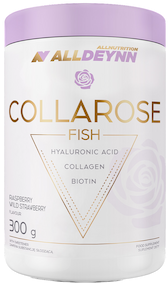
- Collagen content: 5000 mg hydrolysate fish collagen VERISOL F® .
- Additional active ingredients: vitamin C, hyaluronic acid, biotin
- Form: powder to dissolve in water .
- Dose: one scoop (6 g) of powder daily .
- Sufficient for: 50 days .
Product description
Atlantic cod collagen VERISOL F® contained in the formula are easily absorbed collagen peptides of fish origin. Regular supplementation can firm your skinóhand and slow down the ageing process. Your nails will become stronger and stop breaking. The addition of biotin will improve the condition of your hairów. The collagen portion is high enough to also have a good effect on your joints, muscles and bones.
Pros and cons
Atlantic cod collagen VERISOL F® contained in the formula are easily absorbed collagen peptides of fish origin. Regular supplementation can firm your skinóhand and slow down the ageing process. Your nails will become stronger and stop breaking. The addition of biotin will improve the condition of your hairów. The collagen portion is high enough to also have a good effect on your joints, muscles and bones.
Additional information
Atlantic cod collagen VERISOL F® contained in the formula are easily absorbed collagen peptides of fish origin. Regular supplementation can firm your skinóhand and slow down the ageing process. Your nails will become stronger and stop breaking. The addition of biotin will improve the condition of your hairów. The collagen portion is high enough to also have a good effect on your joints, muscles and bones.
Expert and user opinion
Atlantic cod collagen VERISOL F® contained in the formula are easily absorbed collagen peptides of fish origin. Regular supplementation can firm your skinóhand and slow down the ageing process. Your nails will become stronger and stop breaking. The addition of biotin will improve the condition of your hairów. The collagen portion is high enough to also have a good effect on your joints, muscles and bones.
DuoLife Collagen fish collagen 2500 mg
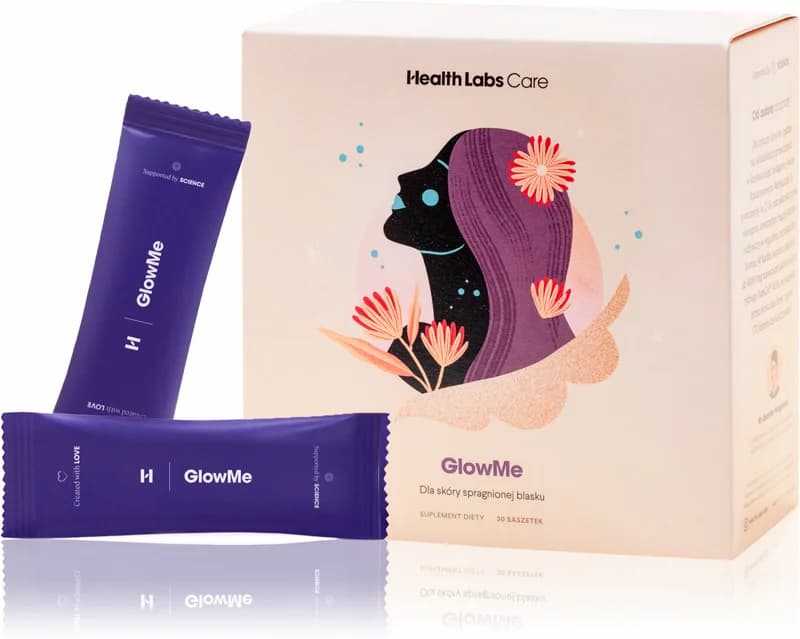
- Collagen content: 2500 mg collagen
- Additional active ingredients: vitamin C, silicon, glucosamine, hyaluronic acid, nettle and bamboo extracts
- Form: liquid to drink .
- Dose:25 ml .
- Sufficient for: 30 days .
Product description
100% natural collagen liquid without unnecessary ingredientsós. The composition of ingredientsós improves the appearance and condition of skinóry, hairów, nails. DuoLife is a good choiceór if you notice the first signs of skinóry ageing or want to stop this process. A tasty liquid, convenient to use.
Pros and cons
100% natural collagen liquid without unnecessary ingredientsós. The composition of ingredientsós improves the appearance and condition of skinóry, hairów, nails. DuoLife is a good choiceór if you notice the first signs of skinóry ageing or want to stop this process. A tasty liquid, convenient to use.
Additional information
100% natural collagen liquid without unnecessary ingredientsós. The composition of ingredientsós improves the appearance and condition of skinóry, hairów, nails. DuoLife is a good choiceór if you notice the first signs of skinóry ageing or want to stop this process. A tasty liquid, convenient to use.
User review
100% natural collagen liquid without unnecessary ingredientsós. The composition of ingredientsós improves the appearance and condition of skinóry, hairów, nails. DuoLife is a good choiceór if you notice the first signs of skinóry ageing or want to stop this process. A tasty liquid, convenient to use.
Pharmovit liquid collagen 10000 mg
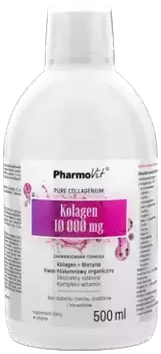
- Collagen content: 10000 mg hydrolysed bovine collagen types I and III .
- Additional active ingredients: hyaluronic acid, natural plant extracts, vitamin C, B vitamins, zinc, vitamin D
- Form: vials .
- Dose: 25 ml .
- Sufficient for: 20 days .
Product description
A solid daily dose of collagen for jointómuscle and bone health and beauty. The duo of collagen and vitamin C has a positive effect on each other, so that „the protein of youth” is better absorbed and more efficiently produced in the body.
Pros and cons
A solid daily dose of collagen for jointómuscle and bone health and beauty. The duo of collagen and vitamin C has a positive effect on each other, so that „the protein of youth” is better absorbed and more efficiently produced in the body.
Additional information
A solid daily dose of collagen for jointómuscle and bone health and beauty. The duo of collagen and vitamin C has a positive effect on each other, so that „the protein of youth” is better absorbed and more efficiently produced in the body.
KFD Premium Collagen+
Product description
High dose of collagen and a real bomb of vitamins C and D and organic sulphur. With this preparation the effects will come immediately. You will improve the firmness of your skin and reduce wrinkles. Your hair and nails will be strong and shiny.
A generous dose of collagen will improve the mobility of your jointsós, benefit your bone system and muscles. Do you do sports and need a product thatós able to keep up with your needs? This product will do the trick.
Pros and cons
High dose of collagen and a real bomb of vitamins C and D and organic sulphur. With this preparation the effects will come immediately. You will improve the firmness of your skin and reduce wrinkles. Your hair and nails will be strong and shiny.
A generous dose of collagen will improve the mobility of your jointsós, benefit your bone system and muscles. Do you do sports and need a product thatós able to keep up with your needs? This product will do the trick.
Additional information
High dose of collagen and a real bomb of vitamins C and D and organic sulphur. With this preparation the effects will come immediately. You will improve the firmness of your skin and reduce wrinkles. Your hair and nails will be strong and shiny.
A generous dose of collagen will improve the mobility of your jointsós, benefit your bone system and muscles. Do you do sports and need a product thatós able to keep up with your needs? This product will do the trick.
Expert opinion
High dose of collagen and a real bomb of vitamins C and D and organic sulphur. With this preparation the effects will come immediately. You will improve the firmness of your skin and reduce wrinkles. Your hair and nails will be strong and shiny.
A generous dose of collagen will improve the mobility of your jointsós, benefit your bone system and muscles. Do you do sports and need a product thatós able to keep up with your needs? This product will do the trick.
Product description
The dietary supplement from Remé contains beef collagen in a patented formula and vitamin C, whichóra aids its absorption. The formula comes in three flavours: neutral, orange-maracuja and strawberry-pomegranate. The formula can effectively support and improve the condition of the skinóry, hairóry and nails.
Pros and cons
The dietary supplement from Remé contains beef collagen in a patented formula and vitamin C, whichóra aids its absorption. The formula comes in three flavours: neutral, orange-maracuja and strawberry-pomegranate. The formula can effectively support and improve the condition of the skinóry, hairóry and nails.
Additional information
The dietary supplement from Remé contains beef collagen in a patented formula and vitamin C, whichóra aids its absorption. The formula comes in three flavours: neutral, orange-maracuja and strawberry-pomegranate. The formula can effectively support and improve the condition of the skinóry, hairóry and nails.
The dietary supplement from Remé contains beef collagen in a patented formula and vitamin C, whichóra aids its absorption. The formula comes in three flavours: neutral, orange-maracuja and strawberry-pomegranate. The formula can effectively support and improve the condition of the skinóry, hairóry and nails.
{ product:1eiyihgASLfslgpBv80Tk1 }}
{ product:fyjLpBuQHhzwzRvwxSI3V }}
{ product:5fckersx4K9mJxAxV0rRJO }}
See also:
.
Hydrolyzed collagen versus collagen peptides - what it's all about
.
Hydrolyzed collagen - otherwise known as collagen hydrolysate - is, in Polish, hydrolysed collagen. Collagen peptides are collagen peptides. Sounds complicated regardless of the language, but the explanation is simple -
Collagen peptides are small collagen molecules that are formed through a process called hydrolysis. Products that contain collagen peptides and those with hydrolysed collagen are the sameand.
And what exactly is hydrolysis?
.
This is a process that breaks down collagen into smaller molecules - peptides. Normal collagen is made up of large molecules that our bodies cannot completely assimilate. Hydrolysis makes collagen supplements more assimilable.
Hydrolysed collagen is one of the most effective types of collagen you can find in dietary supplements.
See also:
- Which collagen to choose .
- Best collagen
- Best absorbable collagen
- Drinkable collagen
- Collagen in sachets
- Effects of drinking collagen
- Liophilised collagen
- Powdered collagen
- Marine collagen
- Collagen fibers
How much collagen to take to see results?
.
Hydrolysed collagen is often found in dietary supplements, so we'll talk about dosages based on this. According to research, consuming 2.5-15 grams of hydrolysed collagen per day is both effective and safeand.
Lesser amounts of collagen can also be beneficial, but for the skin rather than the joints. However, longer supplementation is usually required in this case, and the results may not be as satisfactory.
 How long to use collagen?
How long to use collagen?
.
The use of collagen supplements for joints, skin, hair and nails can give visible results after about 8-24 weeks. However, it is difficult to predict exactly when you will see the first positive changes, as everyone is different and reacts differently to supplementsand.
When it comes to the maximum length of collagen use, however, there are no specific limits. It is only important to follow the manufacturer's recommendations and to avoid supplementation in case of contraindications (which are often limited to recommendations such as "don't eat fish collagen if you have a fish allergy").
For the length of collagen supplementation, you need only look at the other active ingredients in the supplement..
 .
.
Julia SkrajdaDietitian
.See also:
.
Can supplements with collagen in the name interact with medications?
.
There is no convincing evidence that collagen interacts adversely with drugs or affects their effectiveness or absorption. Collagen is simply a specific food protein. However, it is important to note that many collagen supplements contain additional ingredients, such as vitamins or minerals, which may affect the effects of medicines.
This is why anyone taking any medication (whether medication or dietary supplements) should consult a pharmacist or doctor before taking collagen supplements.

Sprawdź, za co pokochały go tysiące klientek Kolagen Premium (10 000 mg) mango-marakuja -15% z kodem BLOG15
Natu.Care Kolagen Premium 10000 mg, mango-marakuja
Natu.Care Kolagen Premium dla zdrowia stawów, skóry, paznokci i włosów. Najlepsza przyswajalność. Optymalna dawka 5 000 lub 10 000 mg. Przebadany przez niezależne laboratorium.
Zobacz więcej
Wybrałam kolagen Natu.Care, ponieważ miał super opinie – a to było dla mnie bardzo ważne! Odkąd go stosuję, moja skóra znacznie się poprawiła i jest nawilżona, a na głowie pojawiły się nowe "baby hair".@Kasia S.
See also:
.
- Most powerful collagen
- Properties of collagen
- Natural collagen
- When to drink collagen
- Collagen contraindications
- How to supplement collagen .
- Collagen type 1, type 2 and type 3
- Collagen for celllulite .
- Collagen for acne
- Collagen for stretch marks
- Fluid collagen
- What destroys collagen in the body .
Summary
.
- The best collagen available on the market is Natu.Care Collagen Premium. .
- Other formulations worth considering include Colladrop Forte, For Sking Anti-Aging or Daily Glow. .
- Collagen peptides and hydrolysed collagen are virtually the same thing. .
- An effective and safe dose of hydrolysed collagen is 2.5-15 grams. .
- Collagen does not interact with medications. .
- First effects of collagen supplementation will be noticed after 8-24 weeks. .
FAQ
.Which facial collagen to choose?
.One of the best options for facial collagen is the brand's Natu.Care offering, which is Collagen Premium with 10,000 mg of protein. This product stands out not only for its high dose of collagen, but also for its effective active ingredients, laboratory tests confirming its value. Plus, buyers highly praise the taste - zero fish, sheer pleasure.
What can marine collagen help with?
.Marine collagen (English: marine collagen) benefits beauty by improving the condition of skin, hair and nails. However, in addition to this, research indicates that collagen may also support the health of joints and benefit the immune system.
At what age to start taking collagen?
.As early as 25-30 years of age, you may experience the first deficiency of collagen in the body. Although it may not initially be associated with unpleasant discomfort, it is worth starting supplementation by then.
At any time you may encounter problems with your complexion, joint pain or brittle hair and nails. In such cases, collagen can become your last resort.
Collagen can be your last resort.
What damages collagen in the skin?
.The most important element affecting the decline of collagen in skin is the passing of time. While you won't stop the years, you can introduce a healthy lifestyle to help delay the ageing process. What are some things to avoid?
- UV radiation, .
- extreme temperatures, .
- smoking and alcohol abuse, .
- inappropriate diet, .
- inadequate hydration, .
Is collagen in drug form?
.No, collagen is not available as a medicine. All products containing collagen, which can be purchased both in pharmacies and online, are dietary supplements. If you need collagen that offers a strong dose, see the ranking of the strongest collagens.
With what is collagen best absorbed?
.The process of collagen absorption can be hindered without the right nutrients. These include:
- vitamin C, .
- copper, .
- zinc, .
- hyaluronic acid, .
- manganese, .
- organic sulfur (MSM), .
- vitamin A. .
Despite taking collagen supplements, remember to consume foods rich in the above-mentioned vitamins and minerals.
Is fish collagen better than beef collagen?
.Yes, fish collagen is considered superior to beef collagen. Scientific studies show that collagen of sea origin is absorbed up to 1.5 times faster than that of beef or pork origin. However, if you have allergies to fish or seafood, consider whether you are risking potential allergic reactions.
.
Sources
See all
.Bailey, A. J., Sims, T. J., Ebbesen, E. N., Mansell, J. P., Thomsen, J. S., & Mosekilde, Li. (1999). Age-Related Changes in the Biochemical Properties of Human Cancellous Bone Collagen: Relationship to Bone Strength. Calcified Tissue International, 65(3), 203-210. https://doi.org/10.1007/s002239900683
Fligiel, S. E. G., Varani, J., Datta, S. C., Kang, S., Fisher, G. J., & Voorhees, J. J. (2003). Collagen Degradation in Aged/Photodamaged Skin In Vivo and After Exposure to Matrix Metalloproteinase-1 In Vitro. Journal of Investigative Dermatology, 120(5), 842-848. https://doi.org/10.1046/j.1523-1747.2003.12148.x
Liu, D., Nikoo, M., Boran, G., Zhou, P., & Regenstein, J. M. (2015). Collagen and Gelatin. Annual Review of Food Science and Technology, 6(1), 527-557. https://doi.org/10.1146/annurev-food-031414-111800
Significant Amounts of Functional Collagen Peptides Can Be Incorporated in the Diet While Maintaining Indispensable Amino Acid Balance-PMC. (n.d.). Retrieved April 21, 2023, from https://www.ncbi.nlm.nih.gov/pmc/articles/PMC6566836/
Jelonek, L. (2023). Collagen. Everything you need to know (B. Turczynski, ed.; 1st ed.). Natu.Care. https://books.google.com/books?vid=9788396887801
..
Editorials
Meet the team


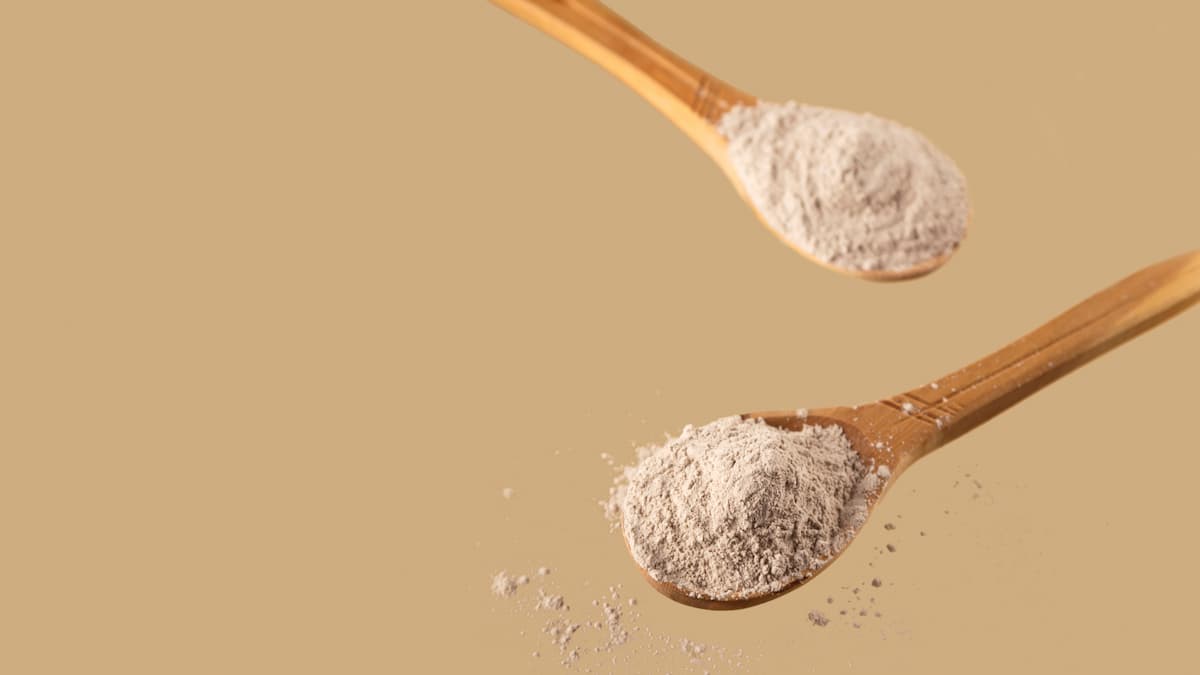
Everything you want to know about COLLinstant collagen.

Collibre collagen is an interesting supplement in shot form.
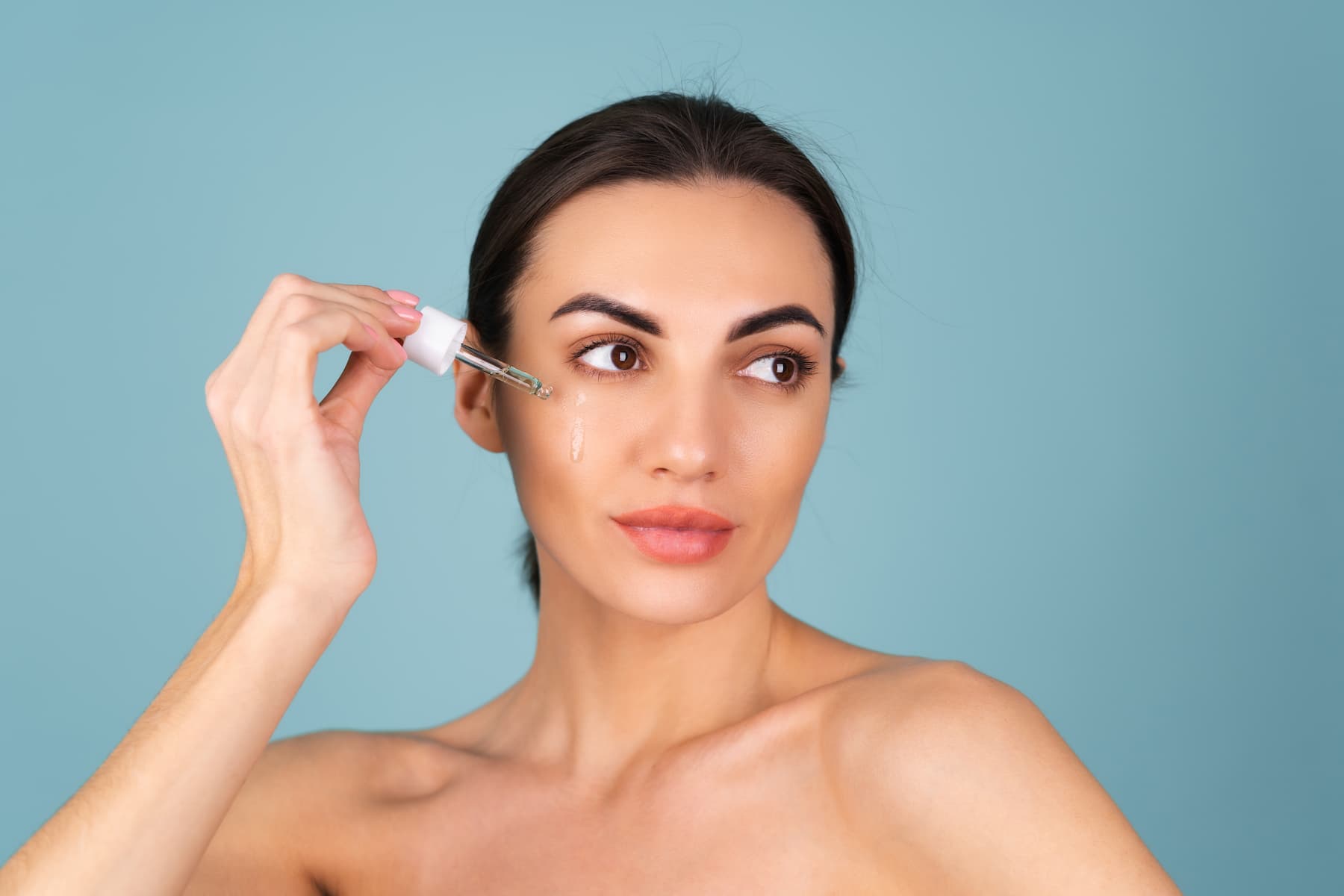
Solgar collagen with hyaluronic acid is a dietary supplement that supports skin and joint health.
